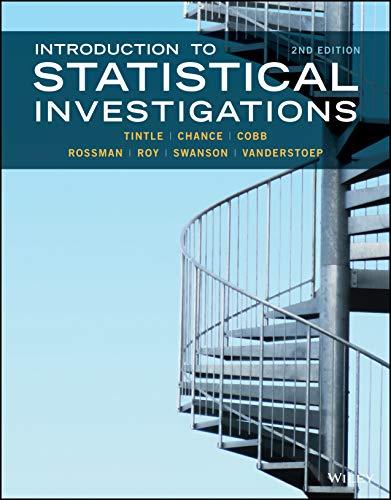Consecutive numbers: a. Determine the (exact, theoretical) probability that rolling a pair of fair six-sided dice results
Question:
Consecutive numbers:
a. Determine the (exact, theoretical) probability that rolling a pair of fair six-sided dice results in consecutive numbers, such as (1, 2) or (5, 4).
b. Suppose that the numbers 1–6 are written on six cards (one number per card), and you pick two cards at random. (Notice that, unlike with dice, it’s impossible to get repeated numbers.) Write out the sample space of possible pairs of numbers that could be picked. Then determine the (exact, theoretical) probability of obtaining consecutive numbers.
c. With which scenario (dice or cards) is the probability of obtaining consecutive numbers higher? Explain why this makes sense.
Step by Step Answer:

Introduction To Statistical Investigations
ISBN: 9781119683452
2nd Edition
Authors: Beth L.Chance, George W.Cobb, Allan J.Rossman Nathan Tintle, Todd Swanson Soma Roy





